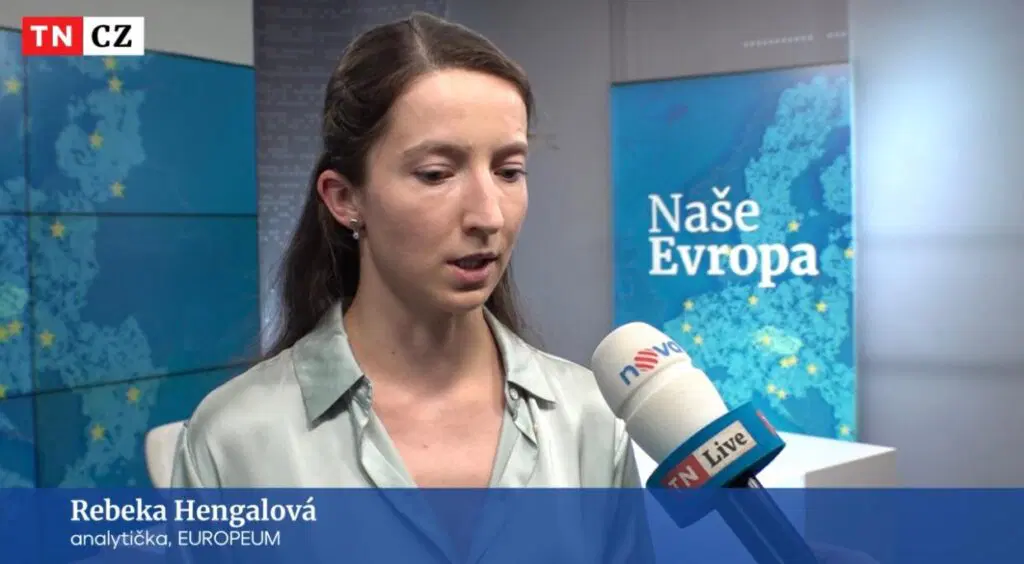
TV Nova | Development of renewable energy sources
More info 31. 5. 2024
31. 5. 2024
How does the Czech public view climate change and the development of renewable energy sources? Do they see it as a path to competitiveness? According to Czechs, should the European Union focus on environmental issues? Rebeka Hengalová, a research fellow at EUROPEUM Institute, discussed the STEM survey results in collaboration with the EUROPEUM Institute on the program "Naše Evropa" on TV Nova.
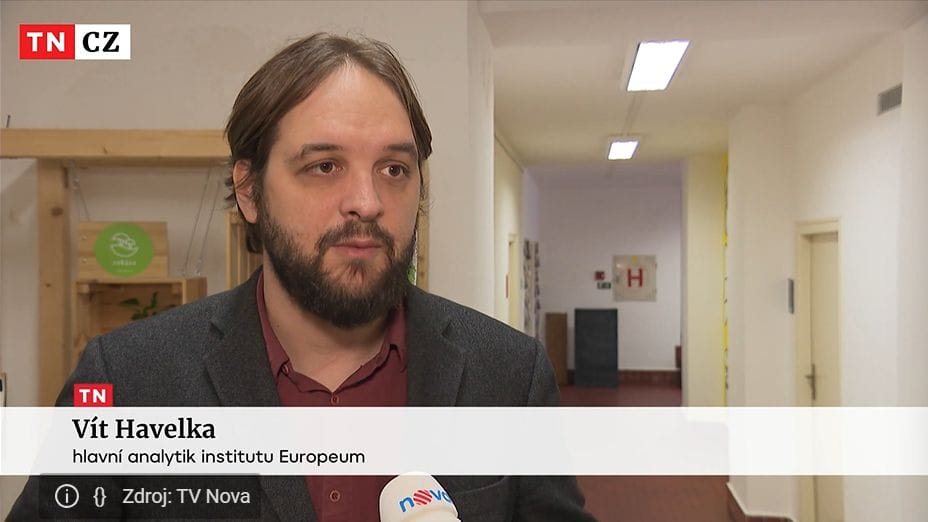
TV Nova | Analysis of Czech MEPs. What influence do they have on European issues?
More info 22. 5. 2024
22. 5. 2024
EUROPEUM Institute examined the influence of MEPs on addressing european issues in the Czech Republic, and their activity in Brussels. How did Czech candidates fare? What will be the most important topics for the upcoming five-year term of the European Parliament? Researchers Vít Havelka and Rebeka Hengalová from Institute EUROPEUM discussed the ranking of the most active MEPs for the main broadcast TV Nova.

ČRo Plus | EU will regulate fast fashion platform Shein
More info 27. 4. 2024
27. 4. 2024
Chinese clothing and accessories company Shein has been included by the European Commission among the large platforms regulated by the EU's Digital Services Regulation. The company now has four months to comply with the stricter rules. Rebeka Hengalová, a researcher at the EUROPEUM Institute, commented for Czech Radio Plus.
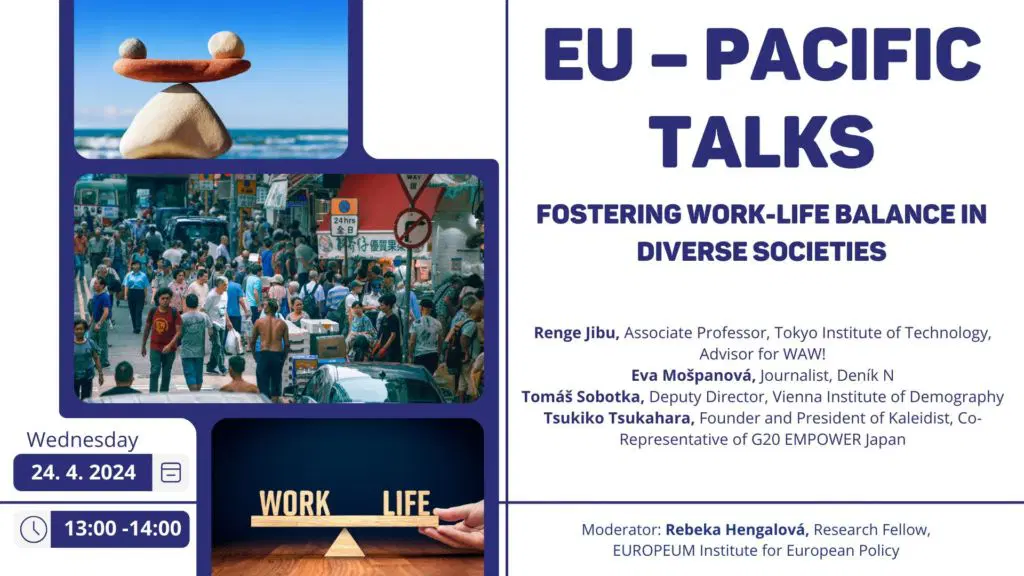
EU-Pacific Talks | Fostering Work-Life Balance in Diverse Societies
More info 24. 4. 2024
24. 4. 2024
We would like to invite you to the debate called “Fostering Work-Life Balance in Diverse Societies ” in the EU-Pacific Talks series.
The debate will take place on Wednesday, April 24 at 13:00 via an online stream on FB.
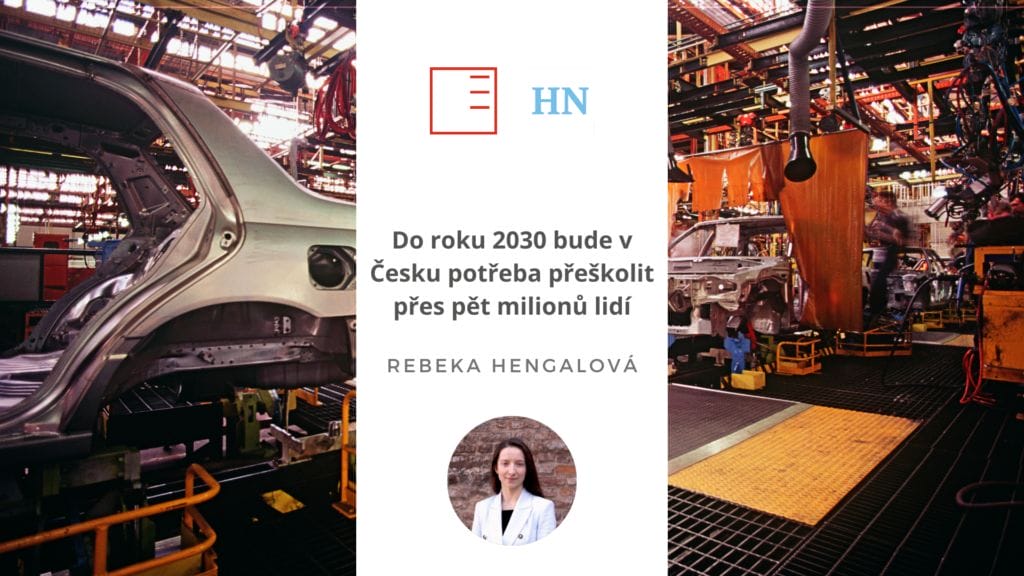
Hospodářské noviny | More than five million people will need to be retrained in the Czech Republic by 2030. Car industry will mainly face the problems
More info 15. 4. 2024
15. 4. 2024
The Czech car industry is lagging behind the rest of Europe and the world. It may not be able to pick what to produce, but it has the opportunity to strengthen its competitiveness and resilience. However, it needs trained and educated employees, which are hard to find on the local labour market. So are we going to train the automotive workforce, strengthen the position of our strategic sector and promote a just transformation? Or are we going to continue to say that the transition to electric mobility does not concern us and that the Green Deal for Europe is to blame for increased unemployment? How to produce electric cars and remain competitive? Rebeka Hengalová, a researcher at EUROPEUM Institute, discusses this topic in her article for economic daily Hospodářské noviny.
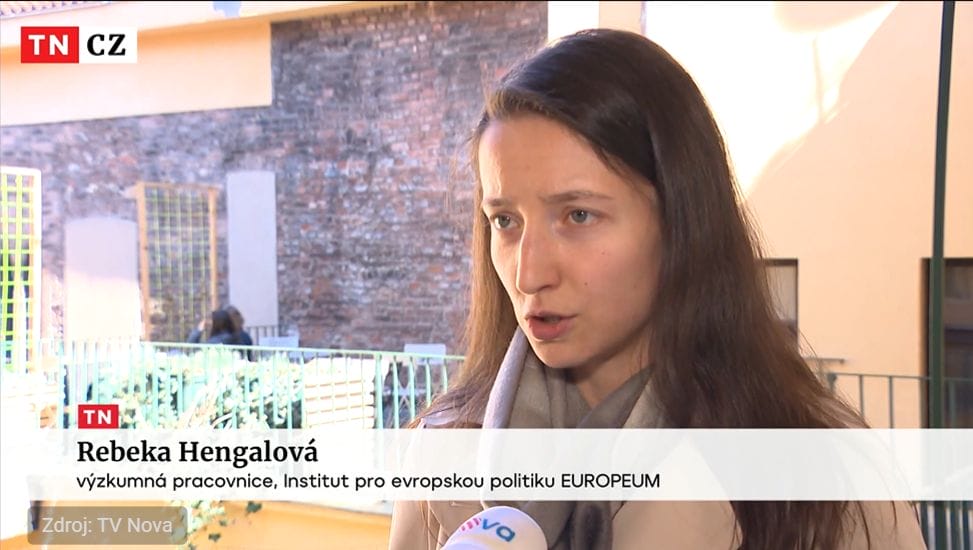
TV Nova | Despite the Green Deal, the Czech Republic still faces issues with excessive emissions
More info 4. 4. 2024
4. 4. 2024
The Czech Republic ranks among countries with highest emissions, with industrial and domestic heating being the main source. From 2027 onwards, new measures will be implemented, affecting households and automobiles, as part of the European commitment to the Green Deal for Europe. One of these measures is, for example, the second version of emission permits. Research associate from the EUROPEUM Institute, Rebeka Hengalová, discussed this system on the main broadcast news on TV Nova.

TV Nova | Czech Republic drew the most money from EU funds for transport
More info 3. 4. 2024
3. 4. 2024
The Czech Republic uses the most money from EU funds for the reconstruction of railway stations, new railway corridors or new motorways. At the same time, traffic is continuously increasing and in some places the capacity is no longer sufficient. Rebeka Hengalová, researcher at EUROPEUM Institute, commented on this issue for the main evening broadcast of TV Nova.
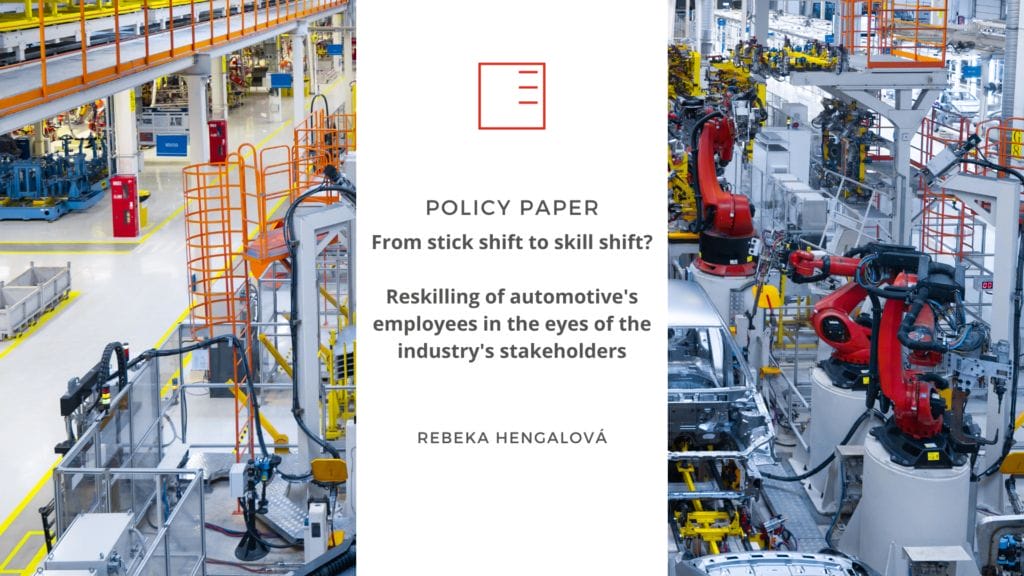
Policy Paper | FROM STICK SHIFT TO SKILL SHIFT? Reskilling of automotive's employees in the eyes of the industry's stakeholders
More info 22. 3. 2024
22. 3. 2024
There is no time to wait in retraining the employees of car manufacturers if we do not want our car industry to fossilize and disappear. Writes Rebeka Hengalová, research fellow at EUROPEUM Institute.
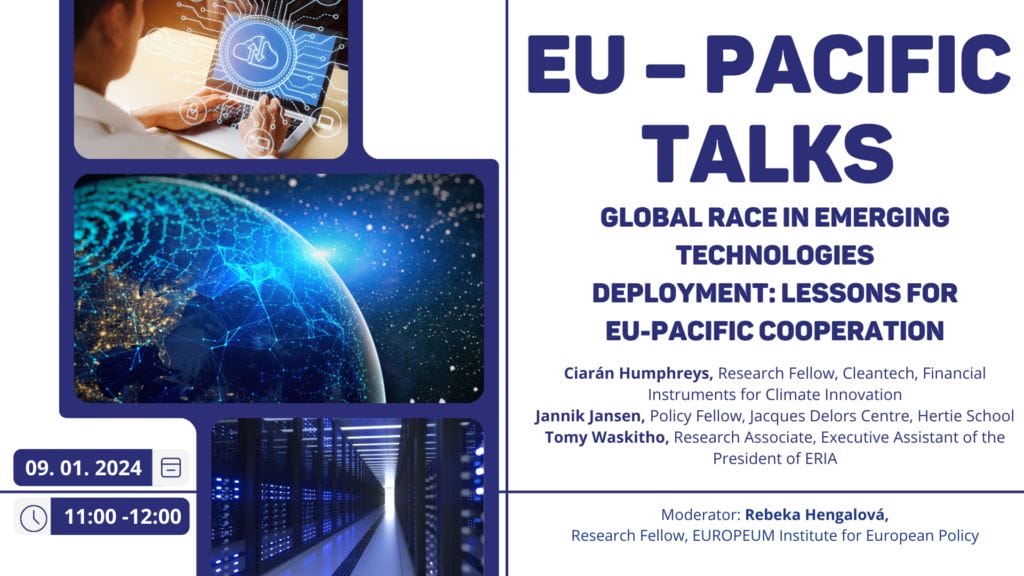
EU-Pacific Talks | Global Race in Emerging Technologies: Lessons for EU-Pacific Cooperation
More info 3. 1. 2024
3. 1. 2024
We would like to invite you to the next debate in the EU-Pacific Talks series, this time on the topic "Global Race in Emerging Technologies: Lessons for EU-Pacific Cooperation". The online debate will take place on Tuesday 9 January from 11:00 to 12:10 in the form of an online FB stream.
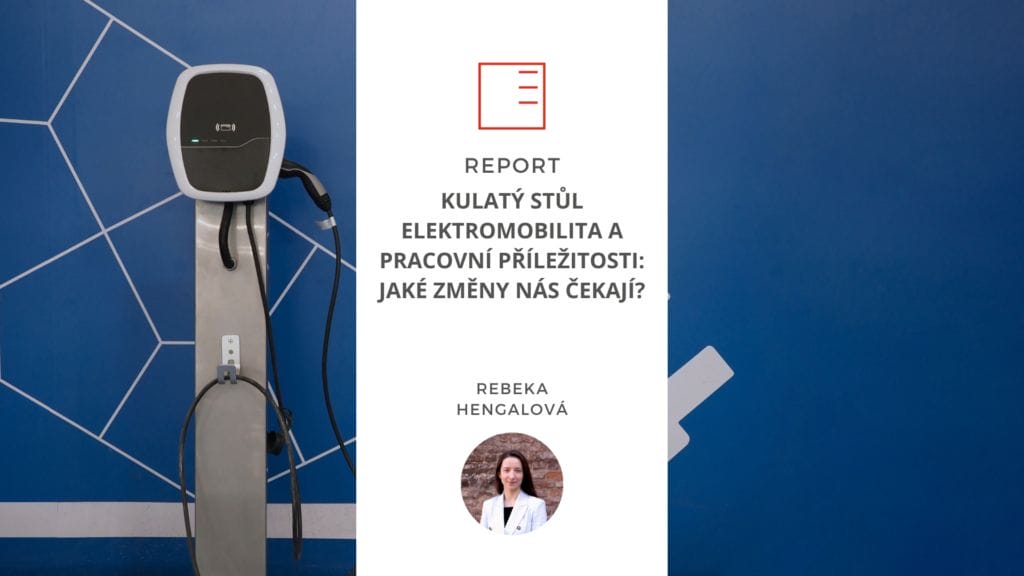
REPORT: The Round Table Electromobility And Work Opportunities: What Changes Await Us?
More info 22. 11. 2023
22. 11. 2023
For the second time, experts on employment in the automotive industry and its transformation met, this time at the regional level of the Moravian-Silesian Region. The topic of labour changes in connection with decarbonisation and electromobility was discussed by representatives of automobile companies, trade unions, employers' associations, regional and state administration. The round table was organized in cooperation with Charles University, CELSI Institute, and Hyundai Nošovice. The report was written and the debate was moderated by researcher Rebeka Hengalová.
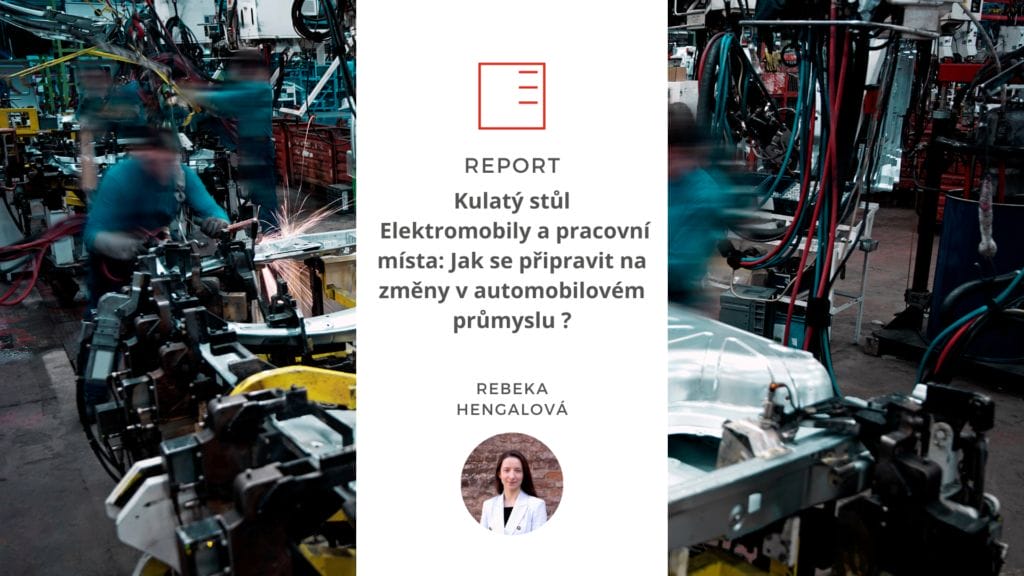
Report | Round table - Electric cars and jobs: How to prepare for changes in the automotive industry?
More info 20. 7. 2023
20. 7. 2023
On June 20, 2023, the EUROPEUM Institute for European Policy organized a closed round table entitled Electric cars and jobs: how to prepare for changes in the automotive industry?. The debate was attended by experts from the Ministry of Labor and Social Affairs and the Ministry of the Environment, as well as from international research organizations, institutions of the European Union, the private sector and, last but not least, representatives of trade unions operating in the automotive industry. The report was written by Rebeka Hengalová.
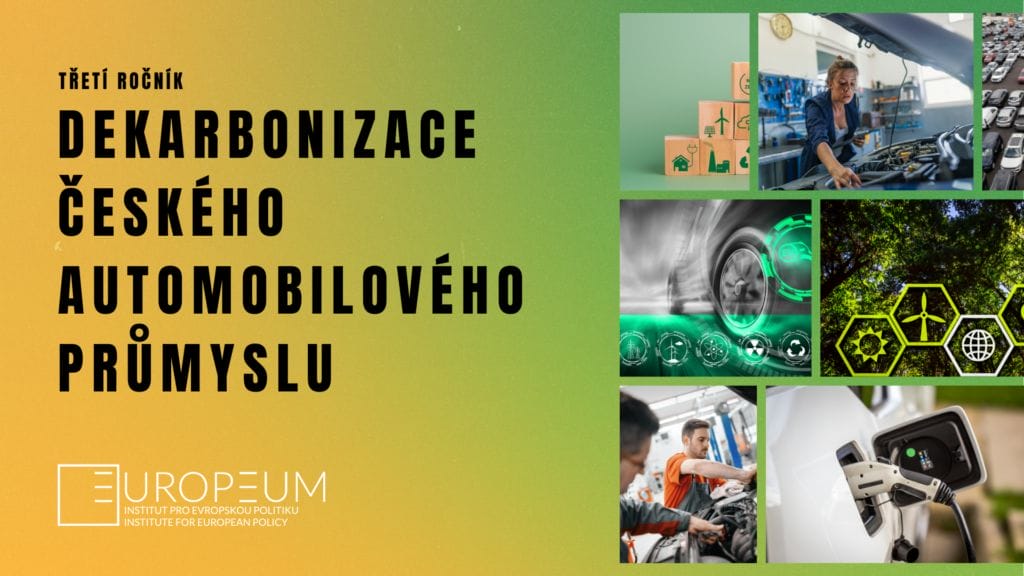
Third year | Decarbonisation of the Czech automotive industry
More info 16. 5. 2023
16. 5. 2023
The climate team of EUROPEUM is currently delivering the 3rd year of its project focused on the decarbonisation of the automotive industry in the Czech Republic. We want to build upon our experience and move this work forward with a more targeted approach. We will focus on three main areas, which we have identified as crucial parts of the puzzle for transitioning to cleaner modes of transport.